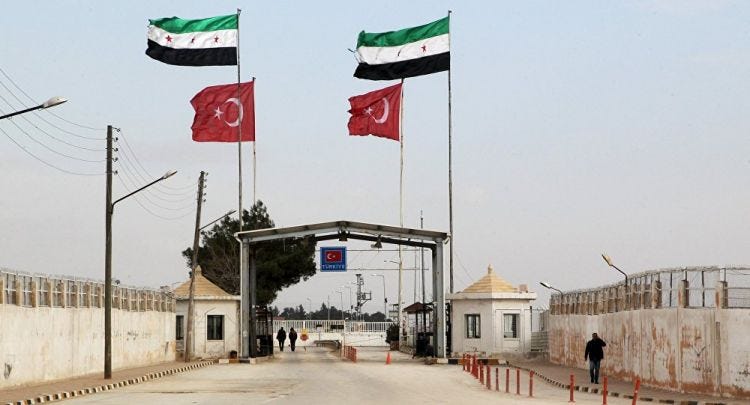Türkiye, Jordan Economic Efforts to Stabilise Syria for Refugee Return
Türkiye and Jordan, like the EU, are keen to see the return of the majority of the refugees as soon as possible.
Continuing its involvement in Syria from the Assad era, Türkiye has followed through with its support for the Syrian rebel groups in ousting Bashar Assad and is now reversing old economic policies in an effort to stabilise the Republic. Since 8 December, Ankara has taken steps mirroring the system previously implemented in Idlib, where the opposition, alongside Türkiye, held control. Most recently, import restrictions on Syrian goods have been lifted, and bilateral trade has been normalised. These developments run parallel to those in Jordan, as both nations work to prepare the war-torn country for the return of refugees.
Turkey’s Roadmap for Recovery
Since the fall of the former regime, the transitional government has received significant support from both regional and international actors. Although sanctions imposed by the US and EU remain in place, direct flights have resumed, several trade restrictions have been lifted, delegations have been exchanged, and humanitarian aid has been pledged. Among these actors, neighbouring Türkiye and Jordan have the greatest interest in stabilising the economy, primarily because they host the largest number of Syrian refugees, who have placed a considerable economic strain on these countries, and, in Türkiye’s case, have become a source of social unrest.
As such, the recent lifting of trade and transit shipment restrictions by Türkiye has placed Syria in the same trade category as all other countries, according to the Turkish Ministry of Trade. This move will pave the way for a more balanced trade relationship, as it has been heavily skewed in Türkiye’s favour, with official data from 2024 showing Turkish exports at $2.2 billion and imports at $437 million. Since January, exports to Syria have increased by 38%, an 18% rise from December, as Ankara rushes to deliver goods such as cement, glass, and ceramics, necessary for supplying the country’s industrial future. These reforms are part of Türkiye’s ‘economic roadmap’ towards recovery, which was agreed upon by both countries and is characterised by free-market policies and foreign investment, likely from the Gulf; the stated end goal is a bilateral Free Trade Agreement (FTA), which has been suspended since the outbreak of war in 2011.
A Regional Effort
Türkiye’s heavy involvement in Syria naturally includes an economic advantage, the perks of which include customs advantages that have been met with criticism from neighbouring countries like Jordan and Lebanon, who’ve struggled due to the former’s destabilising interventionism and subsequent refugee spillover. Together, the three nations have borne the brunt of the Syrian refugee crisis, hosting the largest populations of refugees in the world. It is not only in their vested interest to support the quick, yet sustainable rehabilitation of Syria, but also in the interest of the displaced Syrians themselves, as data has shown that they want to return home as well. Most recently, the Jordanian Minister of Interior has confirmed this, stating that 34,690 Syrians have done so since Assad’s fall. This comes as part of the quarter million returnees, as of the end of January, and not including internally displaced people who have also followed suit. The returns stand to fill the dire labor shortages faced by Syria.



